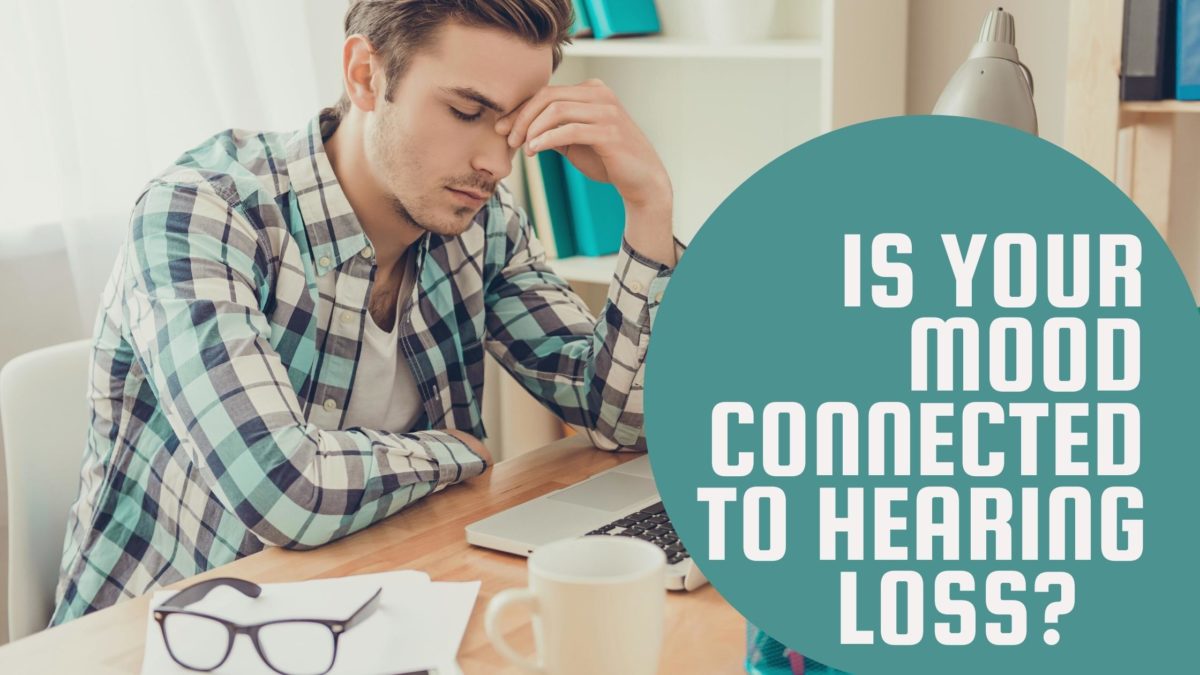- New Study Shows that 1 in 10 Adults in the US Suffer from Tinnitus - October 31, 2021
- Prevent Falls by Treating Hearing Loss - October 21, 2021
- October is Protect Your Hearing Month - October 16, 2021
Some people barely seem to be bothered by hearing loss. They might ask you to repeat yourself or speak more loudly, but they sometimes don’t seem to mind that inability to communicate. Others might seem to be oblivious to conversations, tuning out the people talking and seemingly unphased. Although a few people might genuinely experience hearing loss in this way, the overwhelming majority of people with hearing loss find that it is connected to their mood.
Whether that connection occurs in the form of anger and frustration, anxiety and worry, or depression and isolation, negative effects on your mood are quite common for those with untreated hearing loss. Let’s look at these three experiences to understand how the connection can occur, as well as the relief that can be provided by getting treatment.
Anger and Frustration
When communication is difficult, many people struggle to put together the pieces of speech into a meaningful idea. The jumble of sounds can feel like trying to put together a puzzle without all the pieces. Randomly guessing at what others say can lead to angry outbursts and frustrated reactions, even against your closest loved ones. Although on some level you might know that others are not to blame for your inability to hear, the immediate situation can lead to an explosive reaction. Those angry and frustrated moments can cause a genuine rift in relationships, leading to other mood-related outcomes of hearing loss, as well.
Anxiety and Worry
Some people with hearing loss find that it contributes to anxiety and worry. When they are expected to understand what others are saying, the inability to answer questions or to use the information they are given can make a person feel quite uneasy. With missing messages coming through others’ speech, some people try to tune out altogether, but that avoidance doesn’t solve the problem they face. With so many opportunities for confusion in social settings, many people with hearing loss feel so worried about those embarrassing moments that they decide they’d rather not attend social gatherings or running errands in public whatsoever.
Depression and Isolation
When a person has such difficulty carrying on conversations, that impulse to avoid social settings can translate into genuine feelings of isolation. By remaining at home rather than going out in the world, the feeling of isolation can translate into depression. Some people feel most alone when they are sitting by themselves, but some other people with untreated hearing loss feel that sense of isolation even in the midst of a group. Whether it is a party, dinner at a restaurant, or spending time at home with family and loved ones, the feeling of isolation comes from the inability to actively participate in conversations. Without the ability to connect with loved ones and friends, depression and other mood conditions can come knocking on the door.
Treatment and Relief
The good news is that these experiences of mood-related disorders don’t need to persist. Many people who receive treatment for hearing loss find that they are able to participate in conversations once again. With their hearing devices in place, they can make sense of conversations, avoiding those frustrating or anger-inducing moments from the past. Whereas they might have felt anxious or worried about the potentially embarrassing moments they experienced before, hearing aids provide relief to the racing mind.
Reconnecting with friends, loved ones, family members, and community groups can restore the feeling of connection and solidarity that was once felt in those settings. The mood benefits of an active lifestyle can’t be overstated, and hearing aids can make a person newly willing to get out and about in the world, spending a day full of enriching activity rather than staying at home.
If you have a loved one with untreated hearing loss, they might be hiding some of these mood-related conditions from you. Even when we put on a strong face for the world, the background can be full of emotional pain. The first step is to have a conversation with your loved one about their feelings and their experience of hearing loss. Being able to talk about anger, frustration, anxiety, worry, depression, and isolation can help very much, but the greatest help comes from receiving treatment! Contact us today to schedule an appointment.

